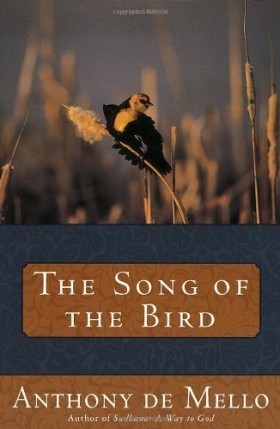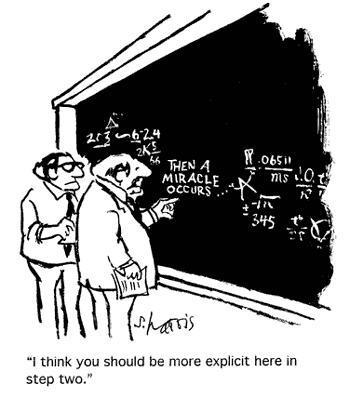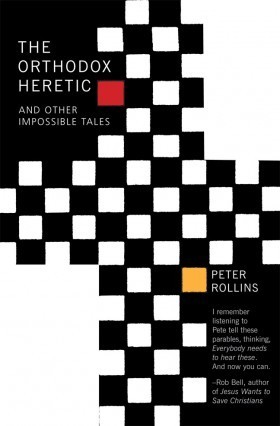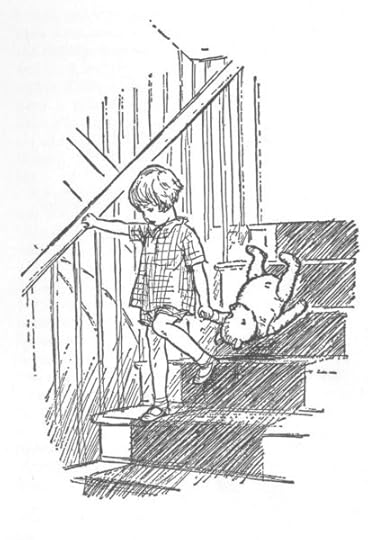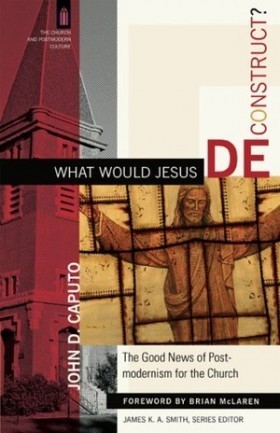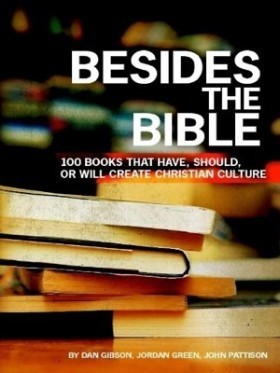Peter Rollins's Blog, page 57
March 28, 2011
The Violence of Christianity
This is a clip from my talk at Poets, Prophets and Preachers with Rob Bell and Shane Hipps. Here I talk about the true violence of Christianity.
March 25, 2011
The Song of the Bird
If you enjoy parables I would recommend picking this book up by Anthony De Mello. In it De Mello shares over 100 parables from a variety of traditions, both ancient and modern to explore the themes of love, faith and life together. This was a book that inspired me to start writing parables. A book worth reading slowly and returning to at different stages in life.
Wisdom, Wonders and Pyro-theology
"Jews demand signs and Greeks look for wisdom, but we preach Christ crucified: a stumbling block to Jews and foolishness to Gentiles"
Paul of Tarsus
The apostle Paul famously distanced himself from the two dominant modes of justifying ones political, cultural or religious dogmas. These were the embrace of wisdom (the Greeks) and signs (the Jews). Both the intellectual reflection typified by the Greek philosophers and the embrace of signs so common among Paul's religious community were rejected by him in favour of 'Christ Crucified'.
So what does this mean?
In order to understand we must recall that in Paul's day, just like today, people sought to justify their beliefs and practices through the use of two primary means – rational reflection and signs. In the first they employed reason to solidify their political, cultural and religious dogmas, they developed apologetic discourses and elaborate metaphysical systems (a process called 'rationalisation'). In the second they read advantageous historical events, happy coincidences and beneficial mysteries as some divine stamp of approval. In contrast, one of Paul's truly earth-shattering insights was that 'Christ Crucified' stood in sharp contrast to these strategies, cutting across these attempts at justifying ourselves and our systems. The image of a Crucified God was, and remains, an offense to reason and a stumbling block to signs. Indeed to undergo the Crucifixion means to experience the poverty of our apologetic strategies and the impotence of signs that once justified us.
The problem is that today we have simply reintegrated the Crucifixion back into the categories that Paul saw as antithetical to it. Thus turning the death of God into a mythological explanation of reality (modern theology) and a sign that everything is OK.
In saying this I am not claiming that there is no place for wisdom and wonders but rather that, instead of reintegrating the Crucifixion into these traditional Paulinian categories we must allow the Crucifixion to transform the way we understand them. In other words a post-Crucifixion understanding of wisdom and wonders does not see them primarily as a means of justifying our already held beliefs, but rather as ways of helping to rupture them and open them up to an experience of transcendence. Wisdom is now employed as a means of interrogating our doctrines and drawing out how they are limited, provisional and historical. Signs are no longer are grasped as the way of proving that we are right and chosen, but rather appear as interruptions that cut into our systems of belief, reminding us that there is more in heaven and on earth than can be dreamt of in our philosophies.
This is the kind of perspective that we see being hinted at and worked out in some of the more sophisticated writings of the mystics. The question remains as to whether we can envisage and bring into being vibrant church communities that embrace this pyro-theological approach.
March 24, 2011
The Orthodox Heretic (Book)
For so many the Christian faith is viewed as little more than a drug that enables the weak to escape reality. An opiate that helps its users to avoid facing the injustice of the world and making a stand against it. In short, the Christian faith is perceived to be a counter-revolutionary ideology that keeps people passive, infantile and ineffectual.
In contrast Rollins has created a series of parables that shatter this popular perception. Parables that demonstrate how radical faith has never been concerned with escaping the world we inhabit but rather with engaging in it more fully. That genuine Christian faith has never capitulated to injustice but rather fought against it at every turn.
Great Theologians: Winnie-the-Pooh
"Here is Edward Bear, coming downstairs now, bump, bump, bump, on the back of his head, behind Christopher Robin. It is, as far as he knows, the only way of coming downstairs, but sometimes he feels that there really is another way, if only he could stop bumping for a moment and think of it"
—
We all experience life like Winnie-the-Pooh at times. We all have been touched by the feeling that we are upside down and traveling this path of ours all wrong. When this feeling creeps up on us it is deeply disconcerting. And so we try to avoid it. We fill our lives with distractions… we gather people around us who tell us everything is fine… we affirm our view of the world all the more vigorously (reading books, watching programs, reading papers etc. that solidify our view of the world and thus help to inoculate us from the experience of Winnie-the-Pooh).
Most of us flee from the idea that perhaps it is not the rest of the world who are wrong… but us.
However there are a few who allow this feeling to speak to them, a few who are brave enough to let this experience interrogate them, to break them, rather than attempting to domesticate it, tame it or repress it. These few open themselves up to a deeply disconcerting experience of feeling forsaken by all that has grounded them, all that has sustained them, all that has nurtured them.
This crucifixion experience is deeply painful, but just perhaps it can help to humanize us and open us up a whole new type of community. A community where we acknowledge our weakness, brokenness and frailty, a community in which we gather, not around the idea that we are right, strong, pure and good. But rather around our wounded flesh. Finding purity, beauty and truth, not in the renunciation of our weakness, but in the very midst of it.
March 23, 2011
Dark Night of the Soul (Part II)
This was part of an interview I did with Kim Gentes while at St. Stephen's University in Canada
Dark Night of the Soul (Part I)
This was part of an interview I did with Kim Gentes while at St. Stephen's University in Canada
What Would Jesus Deconstruct?
This provocative book offers a lively rereading of Charles Sheldon's In His Steps as a constructive way forward. John D. Caputo introduces the notion of why the church needs deconstruction, positively defines deconstruction's role in renewal, deconstructs idols of the church, and imagines the future of the church in addressing the practical implications of this for the church's life through liturgy, worship, preaching, and teaching. Students of philosophy, theology, religion, and ministry, as well as others interested in engaging postmodernism and the emerging church phenomenon, will welcome this provocative, non-technical work. Winner of the Gold Award in ForeWord Magazine's 2007 Book of the Year Awards.
This book also includes a discussion of ikon, the Belfast faith collective that I formed.
Besides the Bible (Book)
Besides the Bible is a guide to the really great books you should read – ones that matter. Covering a wide array of subjects and authors, from Christian bookstore bestsellers to classics of Christian history and more, you'll find yourself agreeing with some titles, shaking your head at others, and even shocked by a few. This isn't a dry catalog with dull summaries of books authored by a bunch of dead guys. Dan Gibson, Jordan Green, and John Pattison, along with an all-star team of today's most interesting Christian thinkers (including Peter Rollins, Donald Miller, Phyllis Tickle, Steve Taylor, and William P. Young) will re-ignite your love for reading. Or, if you're a little lazy, give you enough information to make it seem like you're incredibly well-read.
Do you "really" believe, or really believe? (with some thoughts on Rob Bell)
In this little clip Zizek brings up the problem that arises when a group explicitly distances itself from its own embedded political, religious or cultural dogmas. Let us take the example of the Norse creation myth in order to clarify the problem. In this story we learn that a great void once separated an icy land of fog and a tumultuous land of fire. But frozen water from the land of fog and molten lava from the land of fire gradually began to fill the void, eventually mixing to create the first beings (a giant and a cow).
One of the problems for us approaching a story like this lies in our need to bracket its truth. We need to make it clear that we don't actually believe that it is literally true, that it is a story attempting to do justice to our experience of reality, etc. This however leads to three interrelated problems,
1. It retroactively imposes naive belief on the originators of the story
2. It distances us from the power of the story
3. It causes those who are fully engaged in the story to react (often with the proclamation of literalism)
Let us take each of these in turn. Firstly our modern reflexive self-awareness hides the fact that such an "enlightened" mode of suspicion was not so much missing from the past, but unnecessary for it. It is only with the development of a technological discourse that we needed to introduce brackets into our cultural, political and religious claims. One of the side effects of this development was a fundamental change in how we understood the beliefs of the ancients. Because the techological discourse is ubiquitous to us we end up viewing our ancestors as operating with a type of proto-technological language that would have actually been totally foreign to them (this kind of reading is rife in the work of people like Dawkins, Hitchens and Harris as well as Christian apologists).
Secondly, our contemporary need to distance ourselves from what we believe (so as to avoid the reduction of our beliefs to the level of some technological discourse) can lead to a distancing from the power and truth of the story. We end up trying to untangle a knot that is a necessary part of such beliefs, a knot that cannot be undone without the loss of the truth itself. When the knot is untied one is left with nothing but a metaphor or an archaic proto-scientific proposition rather than with the transformative truth of the story.
Finally, when one takes a story that is deeply true to people and place brackets around it the effect can be so unpleasant to the supposedly naive believers that they end up going in the opposite direction and claiming a direct literalism (actually becoming naive believers). Here their very attempt to protect the power of the belief in question results in them losing it.
In this reading we can see that the predominant form of fundamentalism today arises as a direct result of this contemporary act of bracketing. For with the introduction of brackets and caveats to theology the unintended result is the rise of a group who attempt to protect the belief through the assertion of literalism. No matter who wins the main casualty is, of course, the power and truth of the belief in question.
There is not space here to discuss the way out of this impasse, however we might want to see Rob Bell as someone who is courageously offering a way forward with his new book Love Wins. Rob understands the knot that exists in belief and attempts to remain true to it in both the style of his communication and the content. He is however under constant pressure at the moment to 'clarify' his position (meaning to rob it of its truth). Hopefully his talent and insight will enable him to avoid what people on both sides (liberal and conservative) seek.
Peter Rollins's Blog
- Peter Rollins's profile
- 314 followers


